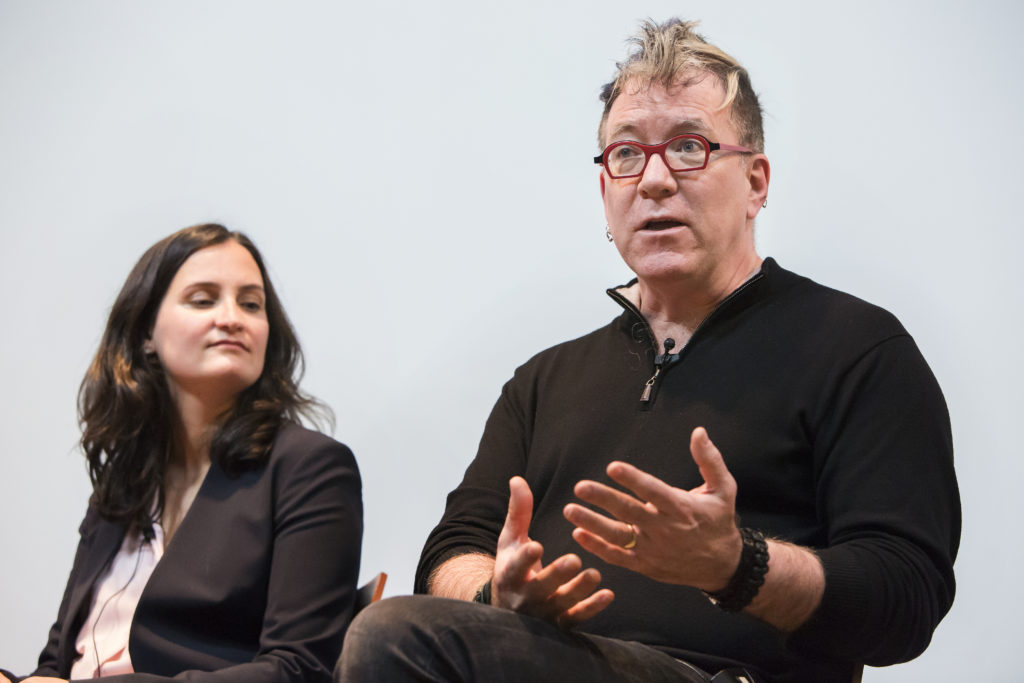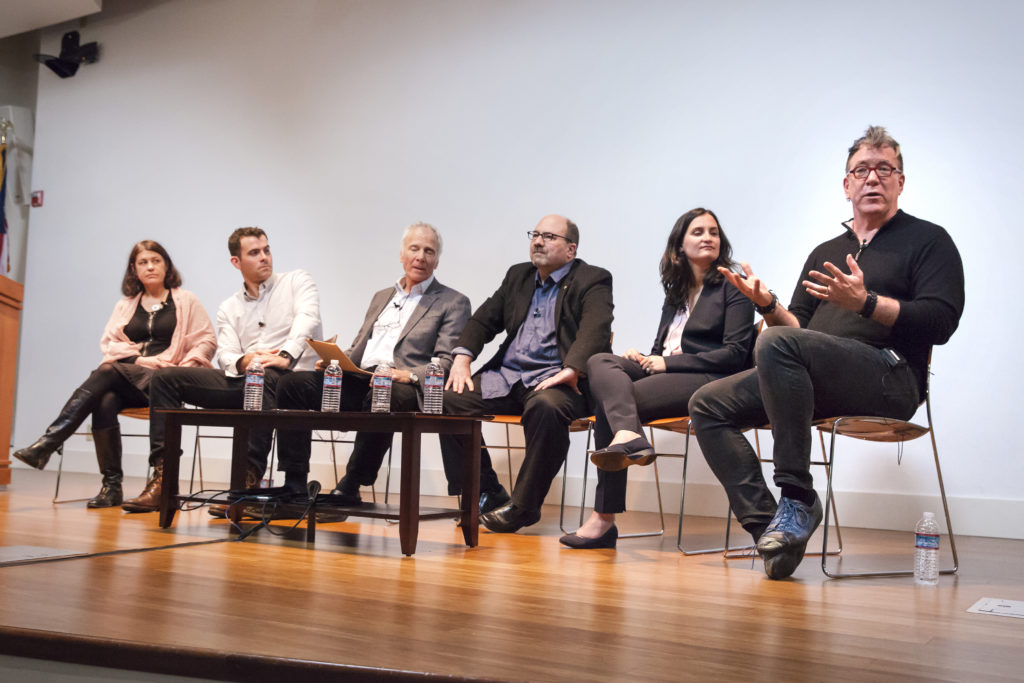
Adapted from a story by UC Berkeley Public Affairs
Is fake news undermining the truth? That question was hashed out by Berkeley and industry experts in a discussion Thursday night on an issue that rose to play a hotly-debated role in the 2016 presidential campaign and the election of Donald Trump.
“Fake news, misinformation, disinformation, that’s been around forever. And it always will be,” explained University Librarian Jeffrey MacKie-Mason. “What has changed is precisely the fact that the cost of distribution has gone to zero. … Anybody can be a publisher.”
MacKie-Mason, who is also a professor at Berkeley’s School of Information, participated in a panel that included Adam Mosseri, Facebook’s vice president of news feed; Craig Newmark, a web pioneer, speaker and philanthropist; Laura Sydell, National Public Radio’s digital culture correspondent; and Catherine Crump, professor and co-director of Berkeley Law’s Samuelson Law, Technology & Public Policy Clinic. UC Berkeley Graduate School of Journalism Dean Edward Wasserman moderated.
Among the topics discussed: The incentives for spreading misinformation, disinformation and lies; propaganda; the potential for financial and political gain; the role of tech companies and news sites; and the risk of bias and censorship.

MacKie-Mason emphasized that content quality — or lack of — is at the heart of the issue today.
“The content platform providers now want to lower the barriers for people to bring content to them. They want to make it as easy as possible for people to publish,” said MacKie-Mason. “At the same time, you want to keep out the manipulations, the spam, the disinformation. But telling the difference is very hard. It’s very costly.”
MacKie-Mason suggested that we, as a society and, in particular, as a university, need to address the consumers, the readers of information.
“What we need to really do is to educate folks much better, to be much better consumers of information,” said MacKie-Mason. “We have not been, in this country, addressing information literacy nearly as much as we need to given the flood of information.”
“We haven’t been teaching our students at any level, our population, to be good self-editors,” he added. “There are always going to be paid promotions out there. We can’t make those go away. We have to make sure that citizens can distinguish between them and recognize what is paid content and what is actual journalistic reporting.”
Teaching students to develop information literacy skills is a top initiative for the University Library, and it is a key piece of the Library’s recently-released strategic plan. As an organization, the Library aims to empower all students to develop the information fluency, digital literacy and research skills to succeed in their academic work and to enable lifelong learning.
As MacKie-Mason said Thursday, “What we need are discerning, critical-thinking citizens. People who actually pay attention to where the news is coming from, where the information is coming from, and make judgements about that.”
View the entire conversation in this video by UC Berkeley Public Affairs: